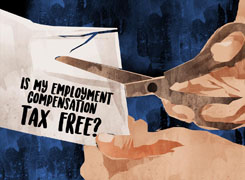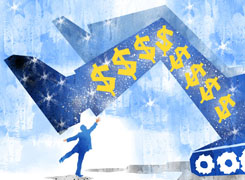T S Khurana |461 Answers |Ask -Follow
Tax Expert - Answered on Dec 06, 2024
Since the last 21 years, he has also been providing expert advice on financial matters, including investments and diversification of funds, and wealth building in the long term to his clients.
He believes that investment in real estate is the safest way for better returns and wealth generation over a period of time.
A former chairman of the Chandigarh Chapter of Institute of Cost Accountants of India, T S Khurana has also served as member of its technical committee.... more

IN THE YEAR 2022-23 I SOLD SOME SHARES IN LOSS. SOME 1.50 LAC LOSS WAS THERE. THIS LOSS CAN BE CLAIMED FROM LTCG TAX?
02. You may set off STCL against any of the STCG or LTCGs. However, LTCG can be set off against LTCG only.
03. Loss can be carried forward for a period of 8 years, provided you have filled your ITRs.
Most welcome for any further clarifications. Thanks.
You may like to see similar questions and answers below
Mihir Tanna |1051 Answers |Ask -Follow
Tax Expert - Answered on Jan 22, 2024
T S Khurana |461 Answers |Ask -Follow
Tax Expert - Answered on Aug 31, 2024
T S Khurana |461 Answers |Ask -Follow
Tax Expert - Answered on Oct 15, 2024
Dr Dipankar Dutta |1195 Answers |Ask -Follow
Tech Careers and Skill Development Expert - Answered on May 03, 2025
Dr Dipankar Dutta |1195 Answers |Ask -Follow
Tech Careers and Skill Development Expert - Answered on May 03, 2025
Radheshyam Zanwar |1591 Answers |Ask -Follow
MHT-CET, IIT-JEE, NEET-UG Expert - Answered on May 03, 2025
Dr Nagarajan Jsk |361 Answers |Ask -Follow
NEET, Medical, Pharmacy Careers - Answered on May 03, 2025
T S Khurana |461 Answers |Ask -Follow
Tax Expert - Answered on May 03, 2025
Kanchan Rai |583 Answers |Ask -Follow
Relationships Expert, Mind Coach - Answered on May 03, 2025
Kanchan Rai |583 Answers |Ask -Follow
Relationships Expert, Mind Coach - Answered on May 03, 2025
Prof Suvasish Mukhopadhyay |607 Answers |Ask -Follow
Career Counsellor - Answered on May 03, 2025
Prof Suvasish Mukhopadhyay |607 Answers |Ask -Follow
Career Counsellor - Answered on May 03, 2025
Milind Vadjikar |1205 Answers |Ask -Follow
Insurance, Stocks, MF, PF Expert - Answered on May 03, 2025


























